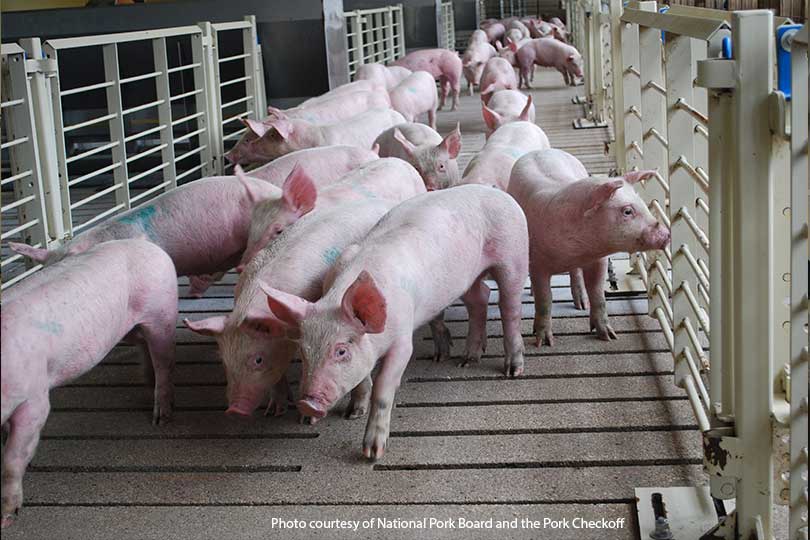By Justin Walker
Communications Specialist
Industry leaders have teamed up to help reduce the risks of foreign animal disease (FAD) in U.S. pork.
Representatives from organizations with expertise in swine formed the National Swine Disease Council (NSDC). The group will lead efforts to emphasize farm biosecurity.
The council includes members from the National Pork Board, National Pork Producers Council, North American Meat Institute, Swine Health Information Center, American Association of Swine Veterinarians, U.S. Department of Agriculture and state animal health officials.
“The biggest risk we face is any foreign animal disease entering the U.S.,” Paul Sundberg, executive director of the Swine Health Information Center, said. “As an industry, we have decades of response experience and are well prepared for any number of swine-specific diseases. However, a new or emerging disease can threaten animal health and welfare, as well as public health. While it is virtually impossible to prevent every disease from entering the U.S., the formation of this council will allow us to respond even more quickly, thereby mitigating risk to herd health through fast action and response.”
The movement for increased biosecurity efforts stemmed from the 2013 porcine epidemic diarrhea virus (PEDv), which causes severe diarrhea and dehydration in swine. While PEDv has been a major concern in previous years, the ongoing threat of African Swine Fever (ASF) increases the demand for the NSDC.
Diseases such as PEDv and ASF can cause a significant disturbance to U.S. pork exports and commerce, but NSDC can help strategize, assess and respond to help the pork industry.
“There has already been a significant amount of work done to identify and assess foreign and emerging disease outbreaks and non-regulatory disease outbreaks in the U.S.,” Harry Snelson, a representative of the American Association of Swine Veterinarians, said. “But we can always improve coordination in assessing and responding. The NSDC will facilitate that strategy.”
This is the first established group of livestock commodity leaders to ensure nationwide biosecurity, Tracy Tomascik, Texas Farm Bureau associate director of Commodity and Regulatory Activities, said. He believes the council will focus their efforts not only on diseases that impact U.S. pork, but international situations as well.
“The NSDC will, first and foremost, reestablish and revisit biosecurity protocols already in place in the U.S.,” Tomascik said. “They are also closely monitoring and learning new information that is coming from countries where they have foreign animal diseases.”

